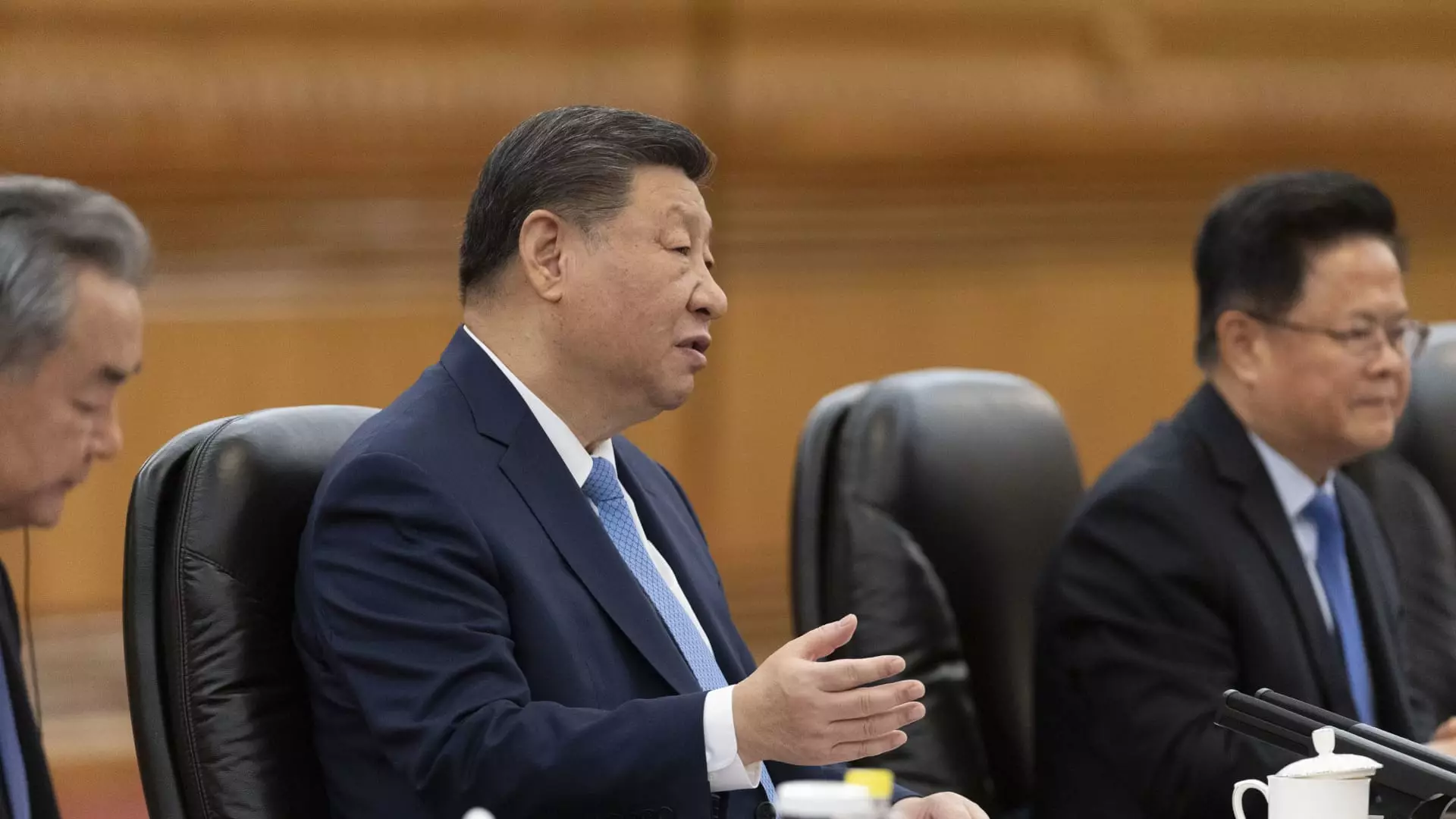In a significant address delivered at a recent symposium with key business leaders, Chinese President Xi Jinping demonstrated a notable shift in policy focus towards supporting the private sector. This momentous meeting, reported by state media outlet Xinhua, has been interpreted by analysts as a clear signal from the top leadership emphasizing the importance of private enterprise in rejuvenating China’s economy. Peiqian Liu, an economist at Fidelity International, noted that this could stir a resurgence of optimism, reinvigorating the so-called “animal spirit” that drives entrepreneurial ventures. Such renewed confidence could potentially serve as a catalyst for economic growth more powerful than traditional fiscal stimulus, should the government take substantial steps to bolster the tech industry.
The Economic Landscape: Challenges Ahead
China finds itself amid a challenging economic terrain characterized by sluggish domestic consumption and a deepening real estate crisis. These internal struggles are compounded by external pressures, particularly high tariffs imposed on its exports. The focus of Xi’s speech on supporting the private sector hints at an acknowledgment of these pressing challenges and a recognition of the critical role that entrepreneurs play in driving innovation and growth. By extending support to private enterprises, particularly within the tech sector, the government may be laying the groundwork for a more vibrant economic revival.
A Symbolic Shift in Regulatory Approach
This symposium marks a pivotal moment, especially for the technology sector, which has faced stringent regulatory scrutiny over the past few years. Lynn Song, chief economist at LNG, described the timing of Xi’s speech as a clear reflection of Beijing’s urgency to uplift a beleaguered private sector amidst economic stagnation and mounting tariff challenges. Analysts suggest that this meeting could signify the end of an era of regulatory excess, ushering in a phase of more favorable conditions for businesses. Andy Maynard, a managing director at China Renaissance, posited that the long shadow of regulatory scrutiny may diminish, allowing tech companies room to maneuver and innovate freely once again.
One noteworthy aspect of the meeting is the speculation surrounding the participation of Alibaba founder Jack Ma. His potential re-emergence on the public stage could serve to reinforce the notion that Beijing is softening its approach to large tech firms, which have faced significant challenges since the onset of regulatory crackdowns in late 2020. The previous attacks on these major entities stemmed from concerns over their growing influence and market power; thus, any indication of reconciliation may bode well for investor confidence and market stability.
Although market responses, such as the modest movement of the CSI 300 index following these revelations, suggest a cautious optimism, the long-term repercussions of Xi’s address remain to be seen. The commentary surrounding this event highlights a crucial juncture for China as it seeks to navigate domestic and international economic challenges. If the government acts decisively to support and empower the private sector fully, we might witness not just a recovery but a transformation in the way Chinese entrepreneurship thrives in a competitive global landscape. The fate of the Chinese economy may well hang in the balance, contingent on the sustained engagement and encouragement of its private enterprises.

